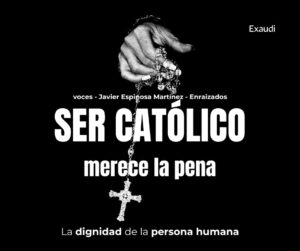The spectacle we are witnessing in the way our rulers conduct politics is pathetic. I confess that, as a Spaniard, I feel a certain degree of shame and a lot of indignation. The behavior of our leaders—those who govern and those who are in the opposition, with honorable exceptions—is very mediocre and, at times, borders on personal baseness. It is very far from being compatible with a true democracy.
We are witnesses of major economic corruption scandals; but also moral and political. The dialectical fights reveal the low level of the people who have managed to occupy positions of such high social responsibility. The legislative chambers, Congress and Senate, immersed in the mud, facing each other and dedicated, almost exclusively, to dealing with the problems raised by the nationalists – a minority of society – have turned their backs on the real problems that seriously affect the Spanish. The spectacle is deplorable.
With this way of doing politics, they have led Spain to be at the bottom of the ranking of developed countries in matters such as education, unemployment, the economic situation, and poverty, which does not stop growing. We have been plunged into a “demographic winter” that, if not corrected, and it is already beginning to be too late for this, we Spaniards will become a small minority in a short time. In short, the list of problems we suffer from is extensive, but known to everyone, because we all suffer from them.
Faced with this bleak panorama, I want to vindicate the Social Doctrine of the Church.
Since the end of the 19th century, with the encyclical Rerum Novarum, in which Pope Leo XIII addressed the social problems of the time, the Church has not stopped analyzing and denouncing the imbalances and injustices that have occurred throughout This Time. The encyclicals, speeches, catechesis, exhortations and all the documents of the popes, referring to social issues, have made up the body of their Social Doctrine, in which no concrete solutions are given to the problems analyzed, but the guidelines are that Catholics must follow, based on principles and values that have remained unchanged.
In this and subsequent works, we intend to analyze these principles and values and highlight their validity to address the problems we have raised. Based on the Doctrine of Jesus, but also on the “Natural Law” and on logic, the guidelines that the Church proposes are also valid for “men of good will”—even if they are not Catholics or even atheists—, to whom they are also directed and can be meeting points for dialogue between different cultures.
The Social Doctrine of the Church, incomprehensibly, is unknown, even by the majority of Catholics: a great lack of formation in the Church itself. When we know it and try to put it into practice, even in our immediate environment, we discover that:
“Being Catholic is worth it”
In this article, we are going to discuss the principle of human dignity. This principle constitutes the backbone of the entire Doctrine of the Church, around which the other principles are developed: the principle of the common good, the principle of subsidiarity and the principle of solidarity. To these principles the Doctrine adds values that shape and enrich them: truth, freedom, justice and charity.
Human dignity is recognized by different philosophical currents: by humanists, by followers of Kant, by existentialists. All of them are based on the uniqueness of the human being who has unique qualities that no other being has, such as conscience, reason and the capacity for moral autonomy, which gives them an intrinsic value that must be respected by themselves and by others, and confers on them rights that are inalienable
In the Universal Declaration of Human Rights, human dignity is recognized as a fundamental principle underlying all other rights:
- Article 1: All human beings are born free and equal in dignity and rights and, endowed as they are with reason and conscience, they must behave fraternally towards one another.
- Article 2: Everyone is entitled to all the rights and freedoms set forth in this Declaration, without distinction of any kind, such as race, color, sex, language, religion, political or other opinion, national or social origin, property, birth or any other status condition…
In the case of the Social Doctrine of the Church, it is based on the conception of man from the perspective of Christian anthropology: the dignity of man derives from the fact of having been created by God in his image and likeness, endowed with body and Sprite, as how to be sociable and open to transcendence.
Although the concept of the dignity of man is based on a different premise, there is no doubt that it is a possible meeting point with other currents of thought. Specifically, the Declaration of the Rights of Man, signed by most countries, is viewed favorably by the Church: in the encyclical Pacem in Terris, Saint John XXIII proposes a series of human rights very similar to those who propose the Declaration.
For us Catholics, the nuance that distinguishes us is the duality of the human being and his sociability.
Regarding the duality of it, man, endowed with body and spirit, fully develops when he cultivates and cares equally for the two dimensions of him. If one takes precedence over the other, as happens today with the cult of the body and the denial of human nature itself, it is impossible for man to achieve happiness. When both the body and the spirit are cared for, man finds balance, tries to answer transcendent questions that help him find the meaning of his life and in that search, he finds the path to happiness.
The basis of man’s sociability lies in the family. Man needs the family to be born, grow and develop. From it, to cover his different needs, societies are created at different levels until reaching the State, which must be at the service of the family and man. When this order is subverted and the State disposes of people and families as it pleases, democracy is not possible.
Respect for the dignity of man requires, firstly, respect for our own person and respect for our own dignity. Respecting our own dignity consists of seeking the truth, adopting principles and scale of values and being consistent with them. If a ruler does not do so, it will be difficult for him to respect the dignity of the people who make up society: he will have no qualms about stealing their rights for his own benefit and that is what is happening today in Spain: it is very sad to observe how our politicians, without the slightest respect for their own person, they affirm one thing and the opposite without any shame, they lie blatantly, they obey the instructions of their superiors without a word, despising their own criteria, for the sake of their benefit and their perks; instead of being at the service of society and seeking it’s good, they try to use power for their own benefit.
Without the protection of the family, formed by a man and a woman, the primary cell of society, the only one capable of procreating and allowing the integral development of man, in its two dimensions—all the other types of family that have been imposed on us, unnatural substitutes and which, in no case, can be considered at the same level—society will go into decline, as is already happening: almost one hundred thousand abortions annually because the policies applied force the most vulnerable women to make that dramatic decision. A large part of young people without possibilities for the future. High divorce rates with the consequent family breakdown and its consequences for children. Loss of authority of parents and teachers, which means a loss of role models to serve as models for young people. The hypersexualization to which we are being subjected, that instrumentalizes and degrades the person. The loneliness of the elderly doomed to despair, etc. …
For the Social Doctrine of the Church, respect for the dignity of the human person and the protection of the family, men and women, must inspire all political action, if we really want to live in a fully democratic society in which man can develop fully, according to your own life project.
Catholics, because we say these things, are called retrograde, and they want to remove us from public life, our proposals are ridiculed with insults and contempt, but without solid arguments. Society, with our politicians at the helm, has settled into post-truth, that is, in lies, in the destruction of man for the benefit of the great elites, without the slightest respect for our dignity and our rights.
With the proposals of the Social Doctrine of the Church, our society will walk the path of justice and will get closer and closer to a democracy, which we do not enjoy today. That’s why we should feel proud and know that: Being Catholic is worth it.
Javier Espinosa Martínez – Enraizados Collaborator
voices – Javier Espinoza Martínez – Rooted
BE CATHOLIC
is worth it
The dignity of the human person











